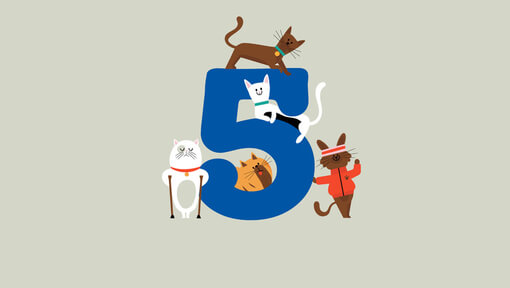You’re sure to have heard reports about the growing rates of overweight pets, and Petplan veterinary expert Brian Faulkner agrees that it’s an important issue. ‘Obesity is a serious medical concern, not just about how a pet looks. So, ensuring your cat is a healthy weight is a vital part of caring for her wellbeing,’ he says. Find the facts on feline obesity here, and how you can help your pet to avoid it.
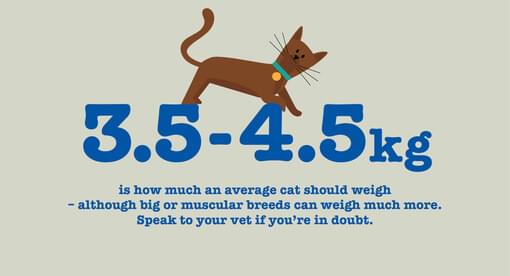
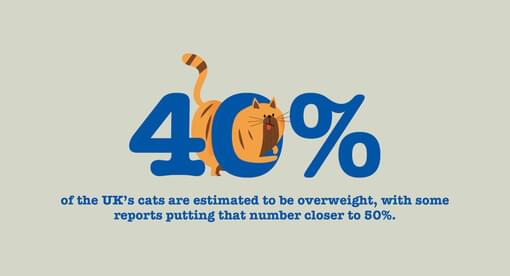
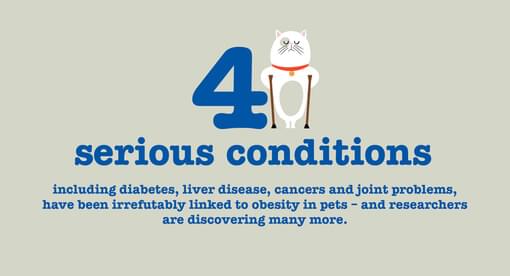
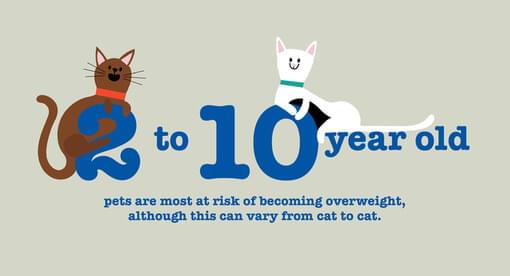
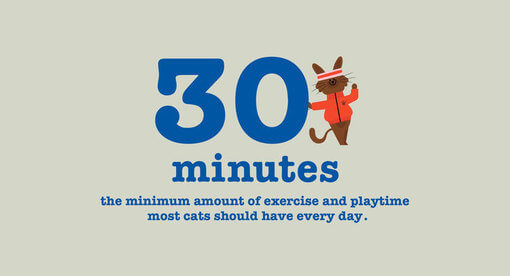
How to keep your cat in shape
1. Stick to feeding times
Cats are natural snackers, and given the choice they’ll keep returning to their bowl all day long. And while they should only take in what they need, modern pet foods are so tasty that they can often overeat. So it’s important to follow the instructions on your pet food packaging and leave out the right amount at recommended intervals throughout the day. Use treats sparingly and avoid processed versions that can be high in calories, opting instead for natural alternatives such as a small piece of cooked chicken breast.
2. Play, hunt and explore
Left to their own devices in the wild, cats would go on multiple hunts a day, burning off the energy from their food in the process. Today, fewer cats go outside, and those that do aren’t necessarily motivated to hunt or chase.
To help your cat get the benefits of exercise, try recreating hunting activities at home by using fishing-rod toys, cat trees and feeding puzzles that only release food when an action is performed.
3. Watch their weight
Many owners don’t realise that their cat is overweight, as it can be tricky to weigh your pet at home. Instead, experts advise keeping an eye on her physical shape or body condition.
As a rough guide, you should be able to feel but not see your cat’s ribs; you can test this by stroking her firmly down both sides at once. If your cat is very well padded or has a swinging pouch, you may need to carefully adjust her food or exercise level, although it’s a good idea to first book a check-up with your vet to rule out any underlying health issues.
4. Take it slowly
If you need to change your cat’s diet or lifestyle, vets recommend doing so gradually, as sudden loss of fat (more than 2% of body weight per week) can cause serious liver complications. It could be that you need to reduce the size and number of your pet’s portions, or that your pet may need a vet-recommended special diet formulation – speak to your vet about what’s best for your cat. Cats are also known to be picky eaters, so you might need to mix in a little of your pet’s usual food to encourage her at first.
Want to know more about keeping your cat active? Take a look at the ideas in our video. And don’t forget, every cat is an individual and their diet and exercise level should be adjusted to suit their needs, with help from your vet if necessary.
